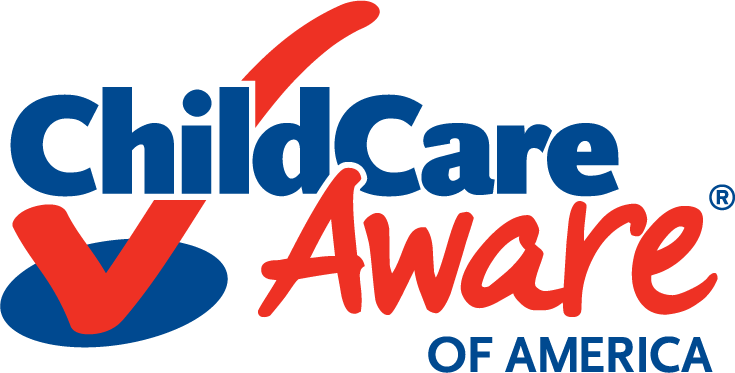
Early childhood education programs are essential for the millions of children and families they serve and play an important role during emergency public health and economic emergencies. As schools close, families need back-up child care. As communities work to ensure no child goes hungry and essential personnel are able to handle emergencies, child care providers need resources and guidance to help assist families. And, as attendance fluctuates, child care business owners need reassurance that they will be able to pay their bills.
Policymakers can act using these recommendations from Child Care Aware® of America to ensure that child care programs can weather this growing public health and economic crisis, and to ensure families continue to have access to the care they need.
Child Care Resource & Referral (CCR&R) agencies can play a critical role in operationalizing these investments. CCR&Rs and their state and local partner organizations interact with parents, providers, businesses and governments to provide an array of child care services for communities. During emergencies, CCR&Rs can help families with changing child care needs and can support providers with the guidance and resources needed to maintain a healthy environment.
Congress has already taken steps to bolster the public health response and provide economic support to some workers and businesses. More is needed.
Congress must include Senator Patty Murray’s (D-WA) Supporting Students in Response to Coronavirus Act (PDF Download), as well as the additional child care system-specific provisions and funding described below, in any stimulus legislation they pass. This bill would ensure that there is dedicated funding for child care providers to purchase supplies to sanitize and clean facilities; cover other costs that are necessary to maintain the operation of programs, such as substitute staff or other emergency assistance; and develop and implement procedures and systems to improve preparedness and response efforts. The grants provided would be contingent on state lead agencies’ assurance that provider reimbursement will be based on enrollment, not attendance.
Senator Murray’s bill also identifies that there will be a need for support to caregivers, early care and education programs, teachers, principals, administrators and other school leaders in order to address the challenges related to stress associated with COVID-19, and it provides funding for grantees in the National Child Traumatic Stress Network.
In addition to passing Senator Murray’s bill, Congress should support provisions that:
- Provide funding to CCR&Rs to collect information about child care provider closures and open slots, and to connect families in need with available slots;
- Provide funding that can be utilized by states to bring emergency/essential workers into the Child Care and Development Fund (CCDF) program temporarily to cover child care costs, or launch an individual reimbursement program for these individuals and their increased child care costs;
- And, ensure robust Small Business Administration (SBA) outreach and funding through grants, preferably, or loans for child care providers (for-profit and non-profit) who are essential community service providers and may be struggling to keep the lights on or pay rent during this crisis.
State policymakers also play an important role in stabilizing and supporting the child care system during this public health emergency.
Governors and state agencies should utilize the resources provided by the U.S. Department of Health and Human Services and its Office of Child Care to implement flexibility and support within the CCDF program. The actions that states can take, which may require support from state legislatures, include implementing grants under CCDF that provide funding to providers to stay open when possible, to cover substitute educators, to provide back-up, non-standard hours, and “pop-up” care especially for emergency and essential works. In addition, states should move to provider reimbursement based on enrollment, not attendance. Finally, states and localities should fund CCR&Rs or other agencies to be able to respond to specific community and families needs during this quickly evolving situation.
During this emergency, it is not appropriate or necessary for state leaders to eliminate or suspend child care licensing rules. We are concerned about the impact of new, untested and unmonitored child care programs, which could negatively impact the health and safety of children.
Instead, to support families who may be struggling in this time, due to work closures and stoppages or illness and caregiving responsibilities, states should make important changes to their subsidy program by waiving redetermination for the time being and extending programs to more families, both those impacted by the emergency and those who might be essential workers during this time. In addition, to ensure that children and families do not go hungry, state and local policymakers should move forward with changes to school meals and nutrition programs in a way that minimizes public health risk.
Finally, to understand the needs of the child care system, states and communities would also benefit from including child care providers in emergency management advisory committees or task forces.
Policymakers at all levels are grappling with how to ensure the economic security of our families and businesses, and the public health necessity of quarantines and other actions. Everyone needs access to paid sick days and paid family and medical leave, as well as compensation during closures and work stoppages. Policymakers should take steps to ensure that public funds are made available to cover these costs, especially for small businesses, including child care providers who already operate on razor-thin margins.
As this situation continues to unfold, Child Care Aware® of America will monitor the needs on the ground and provide additional policy recommendations as needed.






